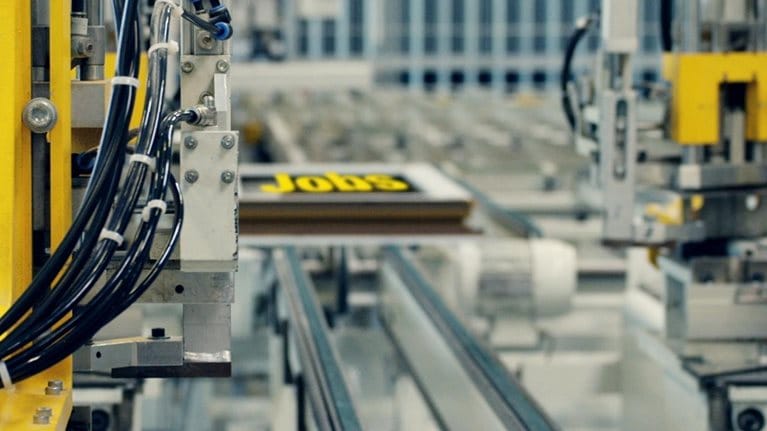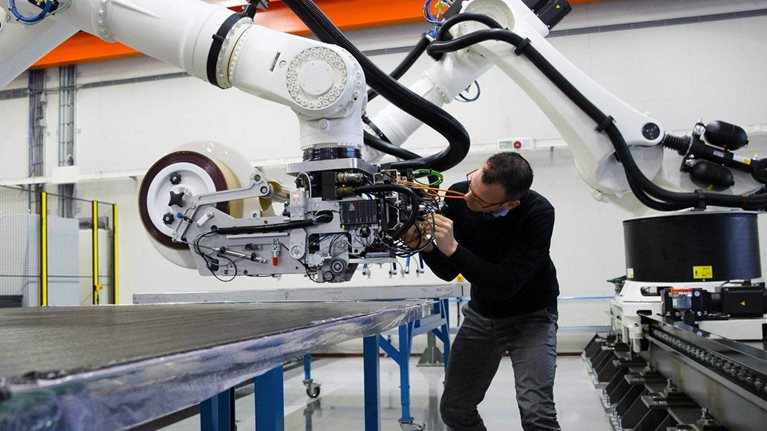A combination of technology and labor-market shifts has fundamentally changed the nature of work and jobs across the globe. In this interview, economist Christopher Pissarides talks about how those shifts demand not only new types of jobs but also support for those who experience job loss or underemployment in an environment where full-time work has become less and less typical.
How can we make labor shifts work <em>for</em> people?
Interview transcript
What we are seeing now are probably some of the biggest changes in labor markets we have seen for a very long time. Of course, if you put it into historical perspective, they are not quite as big as 200 years ago, when the economy was urbanizing. Those were much bigger changes. But if we take the period since the World Wars, since the 1950s, we’re certainly seeing more changes now than at any period before.
The reason, I think, is not that something peculiar happened in labor markets. The reason is the change in structure of the economy—that we are moving away from traditional manufacturing, even away from traditional services. New technologies, especially digital technology, computerization, and the internet, are enabling us to work from home, us to work from different locations, and closer international cooperation and collaboration. Labor markets are responding to those changes by creating a lot of atypical jobs—the gig economy, the zero-hours contracts—jobs that, although they look full time, don’t have as many hours of work as they did traditionally.
The composition of employment, of course, is changing, with many more women coming in and men withdrawing from the labor force. It’s a good change because it’s bringing more inclusiveness, more gender equality. That’s one of the causes of change in labor markets.
To cap it all, the new technology is, I believe, of a more disruptive kind across the skills distribution in labor markets. Whereas traditionally, new technology eliminated jobs low down on the skills distribution—the automated assembly lines and that kind of thing—now we’re seeing technology that might replace quite well-trained expertise, even in the service sector, not only in the manufacturing sector.
The changes we’re seeing in labor markets will adapt to different kinds of jobs in existence. What we have to make sure of is that, first of all, those jobs are the kind of jobs that at least a section of the population that is in the labor market is willing to do. Maybe they fit their lifestyles better. A few years ago, we were saying that part-time jobs were not good jobs; they didn’t have promotion prospects as good as full-time jobs. Then, suddenly, we realized that there was a section of the population that actually preferred to have a part-time job rather than a full-time one, and now they are fully integrated into labor markets. The expectation is that the new types of jobs that we are seeing will develop in the same way—that they will be integrated into types of jobs that different types of workers want to perform.

What the future of work will mean for jobs, skills, and wages
The second thing we have to make sure of about these jobs is that they are jobs that enjoy the same sense of security and support by the government when there is job loss, including training prospects and potential, just like full-time jobs. We need to provide the same support to those who are not in a full-time type of job that we were contributing before.
It’s for that reason that, in the past, I expressed some support for a universal basic income [UBI] that doesn’t distinguish between different types of jobs or employment. There are, of course, many issues that have to be resolved with UBI, and there are some very good experiments going on around the globe. It’s something we should be watching because it might actually be a simple policy that covers everyone. There is inclusion. There are no workers excluded for different reasons. It’s not conditional on what type of jobs you had, so that’s not a constraint—that the worker will think, “Oh, no. Although I’d like a job that is not a 9:00 to 5:00 full-time job, I don’t want to get myself stuck in a situation where I have no social support whatsoever.” UBI might deal with that.


